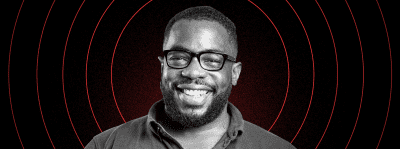Gamechanger or shitshow? 5 takeaways from the Nets’ James Harden trade
For fans, it might feel like years of building up a powerhouse from scratch are down the drain. But it could still have a happy ending
To paraphrase David Byrne—you may ask yourself, “well how did we get here?”
Just over a year ago, the Brooklyn Nets finished assembling one of the more fearsome threesomes in all of sports by trading for James Harden, equal parts beard and epic scorer. The marquee move was meant to be the final piece to the years-long puzzle that has been bringing an NBA championship to Brooklyn.
But on Thursday, as the league’s trade deadline came to a ferocious close, the team traded Harden to their rival Philadelphia 76ers for Ben Simmons—a complicated star guard who has sat out the entire season thus far, and not for any physical reason—and a handful of supporting players and draft picks.
Some early analyses argue that this could be just what the doctor ordered for the Nets, who started the season strong but have fallen faster than dogecoin, losing 10 straight games as of Thursday night. The Nets, who still have the elite Kevin Durant and Kyrie Irving, were too overloaded with scorers and past-their-prime veterans, this argument goes—and Simmons, who is more of an assist machine and defender than ball hog, complements their dynamic duo perfectly.
Nevertheless, it’s hard for longtime Nets fans not to feel skeptical, or confused, or downright exhausted by the news. Here’s why.
The Big 3 is dead, long live the Big 3
In under 13 months, Harden went from eager newcomer on the league’s most exciting franchise to disgruntled star begging to leave.
How did we get here, David Byrne? It’s tough to say, but it is easy to agree with Vincent Goodwill, who writes: “It’s hard to pinpoint exactly when it all went downhill, but we can’t point to the high moment because there isn’t one.”
From the outset, Harden was the odd man out in the trio; Durant and Irving are close friends, and Harden struggled to fit in chemistry-wise and on the court. It didn’t matter much—because of various injuries, the big three only played together in 16 games.
They played well enough to get to the second round of the playoffs against the eventual champion Milwaukee Bucks, but another injury to Irving derailed their chances.
This season has been much more definitively a hot mess. Irving, who is outspokenly unvaccinated against Covid-19, sat out the first few months of the season before the team let him return to the court—though only in away games, due to New York City’s vaccine mandate.
That has done wonders for the team’s chemistry and rhythm, but the squad might have been doomed anyway by its inconsistent supporting cast and terrible defense. They’re currently in fourth place in the Atlantic Division—practically a basement for a group with so many stars.
Whatever the reasons, the Harden trade feels like the end of the Nets’ moment in the spotlight as the team to watch, and the team to fear. Some will argue that the new group with Simmons is still a “Big 3,” but the new arrival will have much to prove after sitting out for so long for less-than-obvious reasons.
And although it wasn’t a parallel situation, it’s hard not to think of the Nets’ previous Big 3 experiment: the acquisition of Paul Pierce, Kevin Garnett and Jason Terry, which ended miserably after one season and left the Nets without top tier draft picks for several years.
The franchise is still a ways off from equaling that disaster, but the current team isn’t exactly provoking excitement—it feels somewhat like the Los Angeles Lakers, who after winning one championship have fumbled the additions of star after star.
Nets fans feel like they’ve been here before, and it’s not a welcome flashback.
This doesn’t change Kyrie’s vaccination status
All of the possible reactions to this trade end with some version of this disclaimer: “assuming that Kyrie Irving returns to the team full time.”
Even those most skeptical of the deal will acknowledge that the Nets are still pushing full steam ahead with championship ambitions. Seth Curry, who is also coming over to Brooklyn, is one of the league’s top three point shooters, averaging 15 points a game. But how do they win it all with one of their two superstars on the bench half the time?
Mayor Eric Adams, for his part, doesn’t appear willing to ride to the rescue anytime soon.
“Let me tell you something, I’m a Nets fan… and I love Kyrie,” Adams said in the fall. “I believe that it’s up to the NBA and Kyrie to come to an understanding of how they’re going to get through this.”
Irving—who has a history of locker room antics and promoting conspiracy theories—is still an unsolved headache for this team, no matter who else is on the roster.
Don’t look back in anger… at the Cleveland Cavaliers
Harden hasn’t been the only piece of collateral damage in the Big 3 experiment.
To get Harden, the Nets gave up rising stars and fan favorites Jarrett Allen and Caris Levert, along with a slew of draft picks, in a multiple team trade.
How are those two doing, one might ask? Allen has helped the Cleveland Cavaliers to a surprising 34-21 record by averaging a double-double per game: just over 16 points and 11 rebounds. And Levert, who is averaging 18.5 points a game, joined his former Nets teammate through a trade on Thursday.
Taken together with veteran former All-Star Kevin Love and the young hotshot Darius Garland, the Cavs have a nice recipe going that could push them deep into the playoffs.
Of course, if the Nets can win with Simmons, the questions will be forever silenced. But there will be questions. And perhaps a Gowanus Canal worth of jealous Nets fans’ tears in the years to come.
One enormous Philly-sized problem
Even if all goes perfectly for the Nets, they may have created a monster in their own backyard.
The Sixers are in first place without having had Simmons step foot on the court this year—what will they look like with the addition of Harden, who despite his struggles is still averaging 22.5 points a night?
It’s safe to say the Sixers made a no-brainer improvement from the chips they were dealt, while the dividends for the Nets are unclear for now.
In Sean Marks we trust?
Sixers fans’ used to have a mantra, starting around 2013: trust “the process,” meaning be patient with a few losing seasons. Success will be built up over time, with draft picks and the development of young players.
Nets fans have informally developed their own version of “the process” over the past five years: In Sean Marks we trust.
Marks has been the team’s general manager since 2016, when he left the San Antonio Spurs organization (a team often cited as one of the most functional successes in all of sport) to take over a Nets franchise reeling from the Pierce-Garnett-Terry dumpster fire. He impressed right away: The team made a series of shrewd draft picks and trades; developed young and formerly overlooked players; and eventually attracted Irving, who was looking to leave the Celtics.
It all left Nets fans feeling like their team was in the right hands, for the first time in a long time.
But the higher the starpower, the higher the risk. As Marks signed Durant, then Harden, the inevitable thoughts came to mind: will giving up all the young talent for superstars be worth the risk? The mounting success on paper silenced the doubts.
Until this year, which has brought the first real turmoil of Marks’ tenure, through the Irving Covid drama and Harden’s desire for a trade, spurred on by the team’s lacking performance.
So regardless of how Simmons comes out of the gate, Nets fans want to know if they can keep trusting Marks—or if the era of comfort is over, and the past six years were all for naught.
Whatever happens, we can all escape into the Netaverse.
You might also like 


























